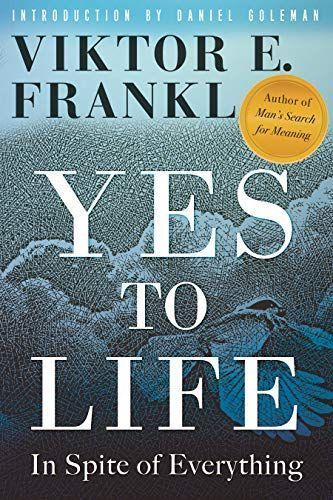
Yes to Life In Spite of Everything
Extraordinary uncovered work by the 16 million copy bestselling author of Man's Search For Meaning published in English for the first time Eleven months after his liberation from Auschwitz, Viktor E. Frankl held a series of public lectures in Vienna. The psychologist, who was to become world famous, explained his central thoughts on meaning, resilience and the importance of embracing life even in the face of great adversity. Published for the very first time, Frankl's words resonate as strongly today as they did in 1946. He offers an insightful exploration of the maxim 'Live as if you were living for the second time', and unfolds his basic conviction that every crisis also includes an opportunity. Despite the unspeakable horrors in the camp, Frankl learnt from his fellow inmates that it is always possible to say 'yes to life', - a profound and timeless lesson for us all.
Reviews
Victoria@vicaleksa
Laura Mei@thelibrariansnook
Mitul Shah@ms
MereCivilian@mc
nat@planats
Taylor Murphy@tayloramurphy
Carmen Maria@carmen2611
Zhomart M@zhomart
Anthony@amorriscode
Azalea Wolong @azaleawaffle
Shyn@shyn
Highlights
Laura Mei@thelibrariansnook
Page 100
Laura Mei@thelibrariansnook
Page 59
Laura Mei@thelibrariansnook
Page 47
Laura Mei@thelibrariansnook
Page 36
Laura Mei@thelibrariansnook
Page 28
Laura Mei@thelibrariansnook
Page 9
Jessica Hsu@jessicahsu
Page 105
Jessica Hsu@jessicahsu